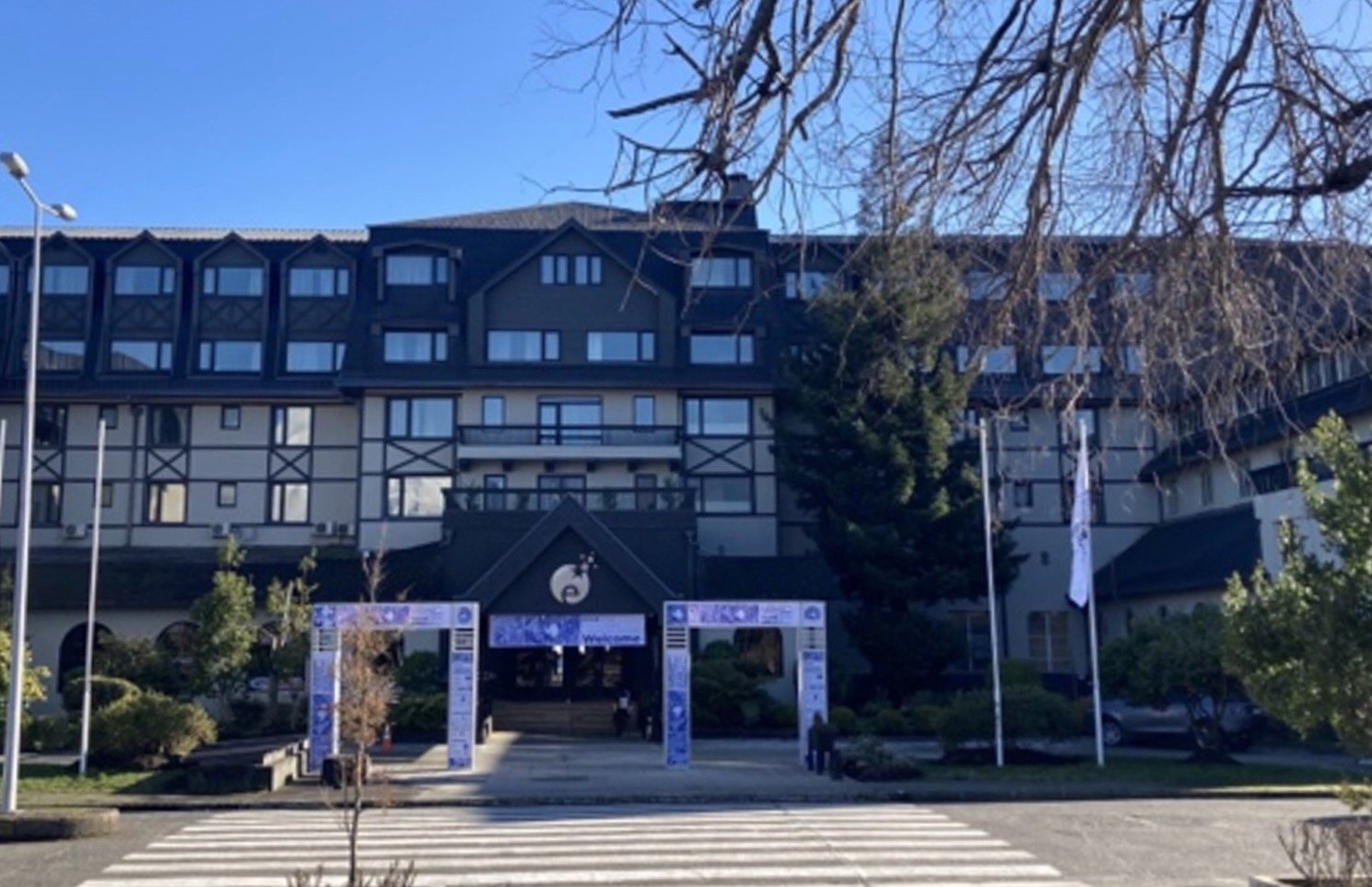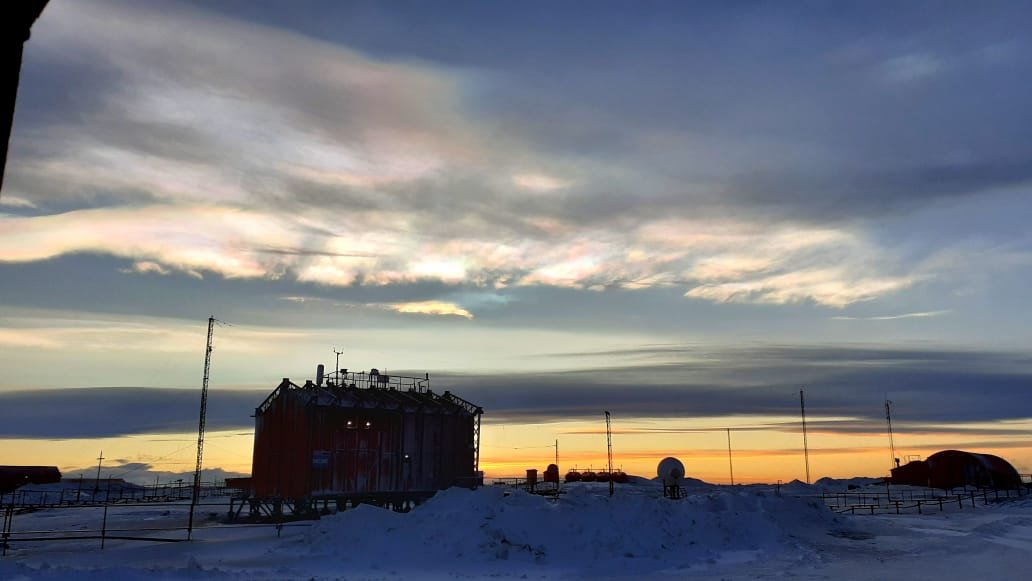
Reflections after the 8th Year of Polar Prediction - Southern Hemisphere (YOPP-SH) Meeting and the path forward for increased Southern Hemisphere collaboration
The 8th Year of Polar Prediction – Southern Hemisphere (YOPP-SH) Meeting took place at the Byrd Polar and Climate Research Center of The Ohio State University on 13-14 June 2024 in Columbus, Ohio, USA in conjunction with the 19th Workshop on Antarctic Meteorology and Climate. Notably, a discussion on PCAPS and its intended outcomes was held in the “Evolution of YOPP-SH into PCAPS and Participation Opportunities” session. David Bromwich, a PCAPS SG member, led this session, and shares his reflections on how PCAPS follows up on the work undertaken during the Polar Prediction Project – Year of Polar Prediction (YOPP) and its Southern Hemisphere component (YOPP-SH), that is scheduled for completion at the end of 2024.

Importance of high-resolution regional atmospheric modelling for the polar regions: Insights from the Polar CORDEX project
Users in polar regions are increasingly asking for more granulated, higher-resolution weather forecasts and climate predictions at grid-spacings of 1-10 km, which presents a major challenge for the current and next generation of atmospheric models. The World Weather Research Programme (WWRP) aims to address this challenge through the Polar Coupled Analysis Prediction for Services (PCAPS) project. Dr Andrew Orr - who is a climate scientist at the British Antarctic Survey, a member of the PCAPS steering group, the coordinator of the Polar Coordinated Regional Climate Downscaling Experiment (Polar CORDEX) project, and the investigator for the Polar Regions in the Earth System (PolarRES) project - reflects on how high-resolution regional atmospheric modelling is being used to address these challenges and help improve our understanding and decisions related to the polar regions.

Meet the PCAPS SG: Reflections from PCAPS SG member Clare Eayrs about PCAPS’ Antarctic research initiatives
This month we kick-off our monthly PCAPS highlight blog post series, where we feature each month one of the PCAPS SG members and the exciting work they are undertaking for PCAPS. Clare Eayrs, a PCAP SG member based at the Korea Polar Research Institute (KOPRI), shares insights on her international polar research background and highlights important milestones and initiatives for future Antarctic research.

PCAPS at the Workshop on Diagnostics For Global Weather Prediction, ECMWF, 9 - 12 September 2024
The European Centre for Medium-Range Weather Forecasts (ECMWF) organised a workshop on diagnostics for global weather prediction in Reading, UK from 9 to 12 September 2024. Several PCAPS-related presentations and posters took place during the workshop.

Arctic Weather Satellite is launched: An ESA/EUMETSAT project to improve monitoring and forecasting over the Arctic
On August 16, 2024, the European Space Agency’s (ESA) Arctic Weather Satellite (AWS) was successfully launched from the Vandenberg Space Force Base in California. This mission aims to show how a potential polar-orbiting constellation of small satellites, observing clouds, humidity and temperature, can improve the quality of short-term forecasts and climate simulations over the Arctic.

CCCI PhD summer school: reflections from PhD participant on interdisciplinary research
The NordForsk-funded Scenario Analyses Regarding Climate Change Hazards and Critical Infrastructures in the Arctic (CCCI) PhD summer school was recently held at the Norwegian Meteorological Institute (12 - 16 August 2024). The summer school gathered PhD students and professors from across the Nordic region with a multidisciplinary background covering law, social -and natural science to develop scenario analyses regarding climate-change related hazards and their impact on critical infrastructure. Are Frode Kvanum, one of the PhD summer school participants, reflects on how the PhD summer school helped broaden his understanding of interdisciplinary research in a climate change context.

One week in Munich: inspirations for the polar regions from the SERA-WG meeting & HIWeather final conference
The bi-annual physical meeting of the Societal and Economic Research Applications working group (SERA-WG) of the WMO World Weather Research Programme (WWRP) was held in conjunction with the final conference of the High Impact Weather project in Munich, Germany. PCAPS steering committee members Jelmer Jeuring (MET Norway) and Machiel Lamers (Wageningen University & Research) are part of SERA-WG and participated in these events.

New policy brief on key challenges in providing forecast uncertainty information to Arctic maritime operators
Addressing the rising maritime risks in the Arctic, the FOCUS project - gathering a consortium of natural and social sciences, public weather services, and an e-navigation company - shares its key findings concerning the communication of forecast uncertainties. The FOCUS project was led by Dr. Malte Müller of the Norwegian Meteorological Institute (MET Norway), and included Dr. Jelmer Jeuring (MET Norway) and Dr. Machiel Lamers (Wageningen University & Research) - two members of the PCAPS steering committee.

PCAPS-related highlights from the SCAR OSC in Pucón, Chile (19 - 22 August 2024)
The Scientific Committee on Antarctic Research’s (SCAR) Open Science Conference (OSC), which had not been held in person since 2018, brought approximately 1,300 Antarctic researchers and experts to Pucón, Chile from 19 to 22 August, 2024. Among them were three members of the PCAPS Steering Group: Clare Eayrs, Machiel Lamers, and Daniela Liggett. Aside from presenting their own research, Clare, Machiel and Daniela used the opportunity to network and create greater awareness about PCAPS in the Antarctic community.

Breaking New Ice: What PCAPS means to polar communities and services
We know that what happens in the polar regions does not stay there; these areas have global implications. But we tend not to think as much about the people who live there, work there and visit there. How do they navigate their environment of sea, ice, snow and wind? What information do they have to work with? How can we make their information better, their lives safer? The PCAPS project will pursue advances in polar science to understand these complex and rapidly changing environments.

New project –Turbulence and Supercool Clouds in Antarctica (T-SCAN) – to begin January 2025
The forthcoming T-SCAN project, funded by the National Weather Service of Argentina, the Argentine Antarctic Institute, and the Institute of Polar Science within Italy’s National Research Council, will consist of a field campaign that will combine balloon-borne measurements and super liquid water content (SLWC) probes with remote observations from ground based instruments to study cloud dynamics and their relation with turbulence, in the adverse region of the Antarctic Peninsula, during the austral summer of 2025.

The Svalbard Marginal Ice Zone Campaign 2024 completed
A recent observational campaign (Spring 2024) in the Marginal Ice Zone, which collected measurements about the atmosphere, wave, and sea-ice systems, has initiated a large-scale model intercomparison to better understand our state-of-the-art coupled forecasting systems.

First annual PCAPS Steering Group Meeting held in Hobart
The first annual Steering Group (SG) meeting for the Polar Coupled Analysis and Prediction for Services (PCAPS) Project was held at the Bureau of Meteorology’s Office in Hobart, Australia from 15 to 19 March 2024. The SG reviewed and significantly updated the draft version of the PCAPS Project Plan, which serves as the guiding framework for the PCAPS project. The SG also meet with a number of stakeholders to discuss their needs and uses for polar environmental services.

